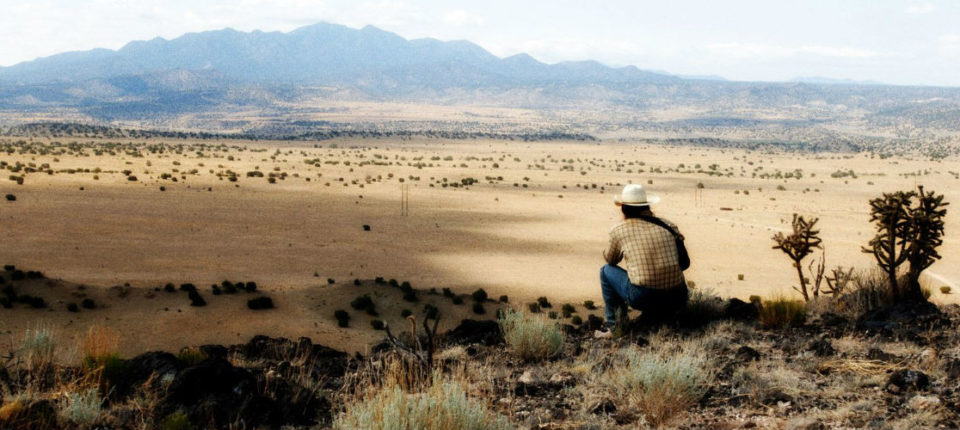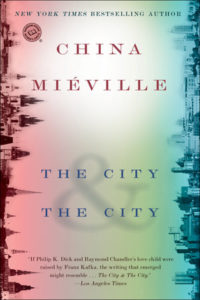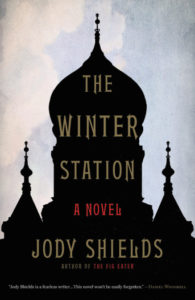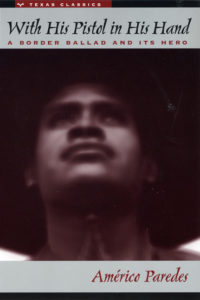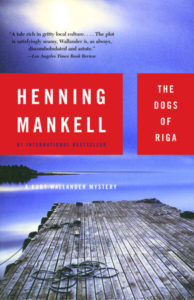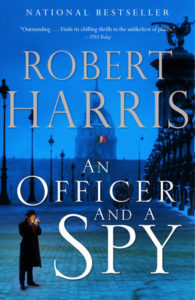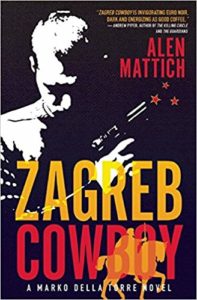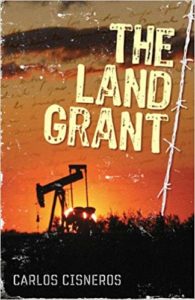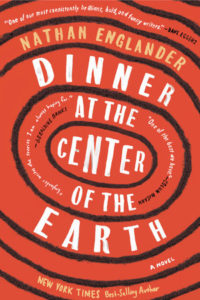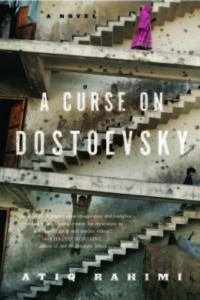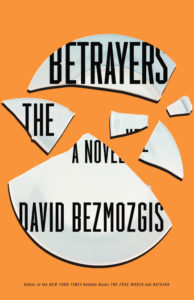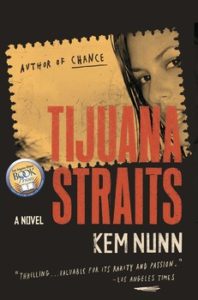In a world where the twists and turns of politicking are shaped by arbitrary straight lines on a map, those in the heartland can occasionally be forgiven for thinking that there are such things as real countries, separate from one another. Step into a border region, though, and one is immersed in a world where nationalities merge, identities are multiple, and in crime fiction, jurisdictions are plenty.
Disputed territories, border regions, and divided cities all make for perfect crime settings, and most come with a hefty dose of regional insight and social commentary to round out their more thrilling plot points. We’ve compiled a list of mysteries set in liminal spaces, most set in areas plagued by ongoing disputes, creating opportunities for some, suffering for others, and unbearable frustrations for most of the detectives in the following books. Others take place in historical conflict zones or now-vanished territories, an uncomfortable reminder that cultural hegemony is endlessly encroaching upon those parts of the world that dare defy the notion of us vs. them.
China Miéville, The City and the City (fantasy city that seems vaguely Eastern European)
The City and the City holds up well in a number of genres, including mystery. The setting is stunning—a fantastical dystopian city, divided not on a central border line, but split between two countries; house by house, block by block, citizens must either see or unsee those objects in front of them, based on if that building is located in their city, or in the other city. The mystery element comes in with the murder of an archeology student researching a fabled and controversial third city, and the detective assigned to the case uses his investigation to examine his fractured home and the secrets within.

John le Carré, The Spy Who Came in From the Cold (Berlin)
In le Carré’s third novel, and the book that catapulted him to stardom, the border is key to both plot and pathos. A British agent, sent to Berlin to pretend to defect, makes the ultimate refusal to choose between nations, preferring to die on the barbed wire between than to to pick one nation over another. The Berlin Wall symbolized arbitrary divisions better than any line on a map, with its overnight division of one city into two.
Joseph Kanon, The Defectors (Border of Finland and Russia)
Joseph Kanon’s Defectors follows a graying American publisher to the Soviet Union, where he’s tasked with fact-checking his defector brother’s dubious memoirs while spending time with soused ex-spooks. A climactic scene in Kanon’s latest involves a doomed attempt by American ex-pats to cross the border into Finland, in an ode to The Spy Who Came in From the Cold.
Jody Shields, Winter Station (Harbin)
Jody Shields’ historical medical thriller Winter Station is set in the outpost city of Harbin during the 1910 outbreak of a plague that knows no borders. A doctor must race to isolate the pestilence before it spreads too far into China, Mongolia, or Russia, while fighting authorities’ attempts to cover up the spread of disease.
Americo Paredes, With His Pistol in His Hand (South Texas/North Mexico)
The foundational text of border studies in the US, Americo Paredes’ folk history With a Pistol in his Hand is the only work of non-fiction on this list, yet any discussion of cross-border shenanigans needs to include the story of Grigorio Cortez, who, after a dispute with Texas Rangers caused by poor translation by a deputy, led the Rangers on the largest man-hunt in history, back and forth across the border. The second half of With a Pistol in his Hand is entirely composed of corridos celebrating Cortez, presented in Spanish and English.
Henning Mankell, Dogs of Riga (Sweden/Latvia)
As we all learned from McNulty at the start of the second season of The Wire, there’s nothing less convenient to investigate than a body found in the water. Kurt Wallander, Mankell’s series protagonist and witness to Europe’s changing political and social landscape throughout the 80s and 90s, investigates two bodies found on a raft. His investigation takes him to Latvia and allows the reader access to the lawless nineties of the post-Soviet world.
Marek Krajewski, Inspector Eberhardt series (Breslau, Polish Corridor)
Krajewski’s quartet of novels to feature Inspector Eberhardt, a dissolute, worldly gourmand, takes place in Breslau after the annexation of the area to Nazi Germany. Eberhardt’s attempt to stem the fascist influence in his hometown is less successful than his efforts to solve the multi-national crimes that come across his desk (frequently forcing him to tear himself away from an enjoyable dinner, or an even more enjoyable tryst with ladies of the evening).
Robert Harris, An Officer and a Spy (Alsace/Lorraine)
Few places have changed hands as much as Alsace/Lorraine, and few countries have mourned their loss of territory as much as France between 1870 and WWI. The historic conflict over Alsace and Lorraine provides the backdrop to Harris’ historical retelling of the story of Dreyfuss, framed as a tale of espionage, and including all the double crosses, prejudice, and vast cover-ups that excited and divided a nation at the end of the 19th century.
Alen Mattich, Zagreb Cowboy (Istria)
Set just before the outbreak of war, Zagreb Cowboy is the first in Alen Mattich’s trilogy featuring a secret policeman who’s blackmail scheme forces him to flee the Yugoslavian capital for his home in Croatia. Mattich’s series protagonist is Istrian, from a small disputed territory that lies at the edge of Italy and cheerfully embraces Italian, Croatian, and Istrian identities, and his provincial origins lend him an outsider perspective when it comes to his critique of nationalism.
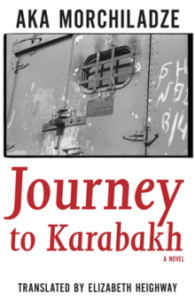
Aka Morchiladze, Journey to Karabakh (Nagorno-Karabakh)
In this modern classic of Georgian literature, a group of disaffected Georgian teens in pursuit of a drug deal drive through the disputed territory of Nagorno-Karabakh. In the midst of conflict over the area between Armenia and Azerbaijan, ghost towns and broken-down tanks have replaced thriving towns, and the dismantling of multiethnic communities – the ugliest side of empire’s dissolution – is on full display.
Barbara Corrado Pope, The Blood of Lorraine (Alsace-Lorraine)
Pope sets her second novel in late-19th-century Alsace, transferring her detective to often-occupied Alsace-Lorraine. Assigned the sensitive case of a murdered Jewish child, Pope’s protagonist navigates growing anti-semitism in the region amidst the complex backdrop of international disputes and the Dreyfus Affair. J’accuse!
Carlos Cisneros, The Land Grant (Brownsville)
Set in the border town of Brownsville, Cisneros’ The Land Grant is a legal thriller with an edge. A lawyer becomes ever-more-embroiled in a long-running property dispute over mineral rights and the Catholic Church, revealing all the iniquities of the Texas-Mexico divide.
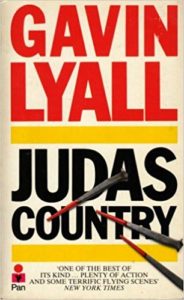
Gavin Lyle, Judas Country (Cyprus)
Gavin Lyle may have slipped into obscurity here in the states after his mid-century popularity as a writer of aeronautically themed espionage thrillers, but when it comes to thrillers set in divided Cyprus, he’s at the top of the list. He may, in fact, be the entirety of the list – surprising given Cyprus’ strong presence in literature prior to the 1970s.
Nathan Englander, Dinner at the Center of the Earth (Tunnels under Israel/Palestine border)
While Englander’s latest ranges across the world, his climactic sequence is the only part that matters for this list – after an Israeli spy and a Palestinian politician fall in love, they seek neutral territory to the level of absurdity, hosting a romantic dinner in the exact middle of a tunnel used for smuggling, just at the border (or at least, one of the borders) between Israel and Palestine.
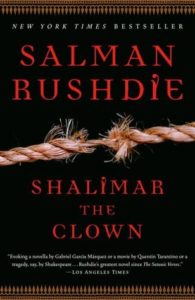
Salman Rushdie, Shalimar the Clown (Kashmir)
Salman Rushdie’s Shalimar the Clown takes us into the disputed territory of Kashmir (and all over the world, because hey, it’s Rushdie). The mysterious and tragic Kashmiri driver Shalimar the Clown assassinates an American diplomat involved in counter-espionage in a grand, sweeping tale that also helps inform audiences of the long and complex history of Kashmir.
Dolores Redondo, The Invisible Guardian (Basque Country)
As the domain of Basques, the path of smugglers and the final resting place of Walter Benjamin, the Pyrenees have always had a place in the literary liminal. Dolores Redondo’s noir trilogy, named for the Baztan River, guides us through the stark landscapes and complex history of Basque Country. The first in the series, The Invisible Guardian, made its way to English language markets this past year.
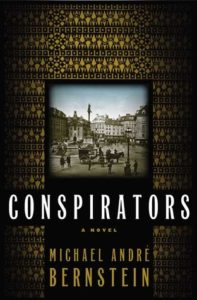
Michael Andre Bernstein, Conspirators (set in Galicia, Austro-Hungary)
One is hard-pressed to find a region that’s changed hands more times than Galicia, or born more bloody consequences from its geography. In Michael Andre Bernstein’s Conspirators, a young spymaster based in Galicia seeks anarchist assassins planning a wave of terror against Austro-Hungary’s officials on the eve of WWI.
Atiq Rahimi, A Curse on Dostoevsky (Afghanistan)
More empires have failed to take and hold Afghanistan than any other modern nation, perhaps qualifying the sizable nation as the most disputed territory of all. Atiq Rahimi’s reworking of Crime and Punishment reflects the tortured history of his setting. Set during the Soviet invasion and the rise of the Taliban, Rahimi’s anti-hero spends his time smoking shisha and worrying about starting a home with his love, until his spur-of-the-moment decision to kill his landlady leads to stranger consequences than ever popped up in the original.
David Bezmozgis, The Betrayers (Crimea)
In this literary tale of intrigue and double-crosses, an Israeli politician once famous as a Soviet Refusenik and his mistress take a vacation to Russian Crimea to spend some time out of the limelight, following a scandal. Their vacation becomes a reckoning when the politician encounters the man who informed on him to the Soviet Authorities, so many years before. The Yalta setting, where titans once met to divide the post-war world, stands in for the fractured landscapes of the post-Soviet world.
Kem Nunn, Tijuana Straits (Tijuana)
Surfer-turned-crime-writer Kem Nunn’s love letter to Tijuana takes us back and forth across the border. After a legal crusader is nearly killed, two men—one on each side of the border—move inexorably closer to a deadly confrontation.

